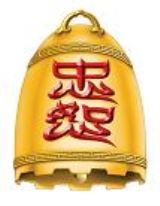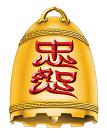
Confucianism in Indonesia
Encyclopedia

Confucius
Confucius , literally "Master Kong", was a Chinese thinker and social philosopher of the Spring and Autumn Period....
.
History
- In 1883, Boen Tjhiang Soe (Wen Chang Shi), after being rebuilt in 1906, then become Boen Bio (Wen Miao (文庙) or Kong Miao (孔庙)) at Jl. Kapasan No. 131 Surabaya. The Colonial Dutch called it "Gredja Boen Bio or Geredja Khonghoetjoe (de kerk van Confucius) or Confucius Church". At the present time it is a place of worship for Confucians in Surabaya. which being cultivated by MAKIN – (Majelis Agama Khonghucu) The Council of Confucianism of Indonesia in Surabaya.
- In 1886, The first published of ConfucianismConfucianismConfucianism is a Chinese ethical and philosophical system developed from the teachings of the Chinese philosopher Confucius . Confucianism originated as an "ethical-sociopolitical teaching" during the Spring and Autumn Period, but later developed metaphysical and cosmological elements in the Han...
book called (書經) Shu Jing in IndonesianIndonesian languageIndonesian is the official language of Indonesia. Indonesian is a normative form of the Riau Islands dialect of Malay, an Austronesian language which has been used as a lingua franca in the Indonesian archipelago for centuries....
, by Lie Kim Hok. - In 1897, Si Shu (四書), the Four Book was translated by Toean Njio Tjoen Ean (in IndonesianIndonesian languageIndonesian is the official language of Indonesia. Indonesian is a normative form of the Riau Islands dialect of Malay, an Austronesian language which has been used as a lingua franca in the Indonesian archipelago for centuries....
) and it was published in Ambon. - In 1900, The translation (in Indonesian) and commentary of Thai Hak (Da Xue (大學), Ajaran Besar) and Tiong Yong (Zhong Yong (中庸), Tengah Sempurna) by Tan Ging Tiong.
- On March 17, 1900, twenty ChineseHan ChineseHan Chinese are an ethnic group native to China and are the largest single ethnic group in the world.Han Chinese constitute about 92% of the population of the People's Republic of China , 98% of the population of the Republic of China , 78% of the population of Singapore, and about 20% of the...
community leaders established the Kongfuzi Social Society Organization called Tiong Hoa Hwee Kwan (Zhong Hua Hui Guan) and the purpose of this organization is to introduce the real teaching of Kongzi. - In 1918 The Kongzism Council of Solo was legally founded
- In 1923 a Congress held at Yogyakarta, Central Java, which established Khong Kauw Tjong Hwee, the Center for Confucianism Assembly.
- On April 16, 1955 it was renamed as MATAKIN for Majelis Tinggi Agama Khonghucu Indonesia (The Supreme Council for Confucian Religion in Indonesia).
See also
- ConfuciusConfuciusConfucius , literally "Master Kong", was a Chinese thinker and social philosopher of the Spring and Autumn Period....
- ConfucianismConfucianismConfucianism is a Chinese ethical and philosophical system developed from the teachings of the Chinese philosopher Confucius . Confucianism originated as an "ethical-sociopolitical teaching" during the Spring and Autumn Period, but later developed metaphysical and cosmological elements in the Han...
- Li Tang (禮堂) in IndonesiaLi Tang (hall of worship)]The Li Tang is a place to perform religious rituals and to learn the teachings of Confucius. Basically the function of Wen Miao and Li Tang are the same; the only difference perhaps is the architecture.-Boen Bio :...
- MenciusMenciusMencius was a Chinese philosopher who was arguably the most famous Confucian after Confucius himself.-Life:Mencius, also known by his birth name Meng Ke or Ko, was born in the State of Zou, now forming the territory of the county-level city of Zoucheng , Shandong province, only thirty kilometres ...
- Neo-ConfucianismNeo-ConfucianismNeo-Confucianism is an ethical and metaphysical Chinese philosophy influenced by Confucianism, that was primarily developed during the Song Dynasty and Ming Dynasty, but which can be traced back to Han Yu and Li Ao in the Tang Dynasty....
- New ConfucianismNew ConfucianismNew Confucianism is an intellectual movement of Confucianism that began in the early 20th century in Republican China, and revived in post-Mao era contemporary China. It is deeply influenced by, but not identical with, the Neo-Confucianism of the Song and Ming dynasties...
- Temple of ConfuciusTemple of ConfuciusA Temple of Confucius or Confucian temple is a temple devoted to the memory of Confucius and the sages and philosophers of Confucianism.- History :...
Go to http://terpconnect.umd.edu/~tkang/welcome_files/Indonesia.htm for Dr. Thomas Kang's explanation of Confucianism in Indonesia. Dr. Kang visited the Confucian Church of Indonesia in the late 90's. Importantly, this variant of Confucianism unquestionably holds a belief in God, and they have hymns in praise of heaven (Tien).

